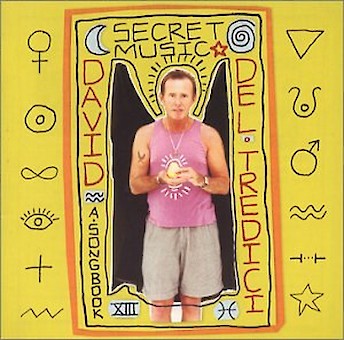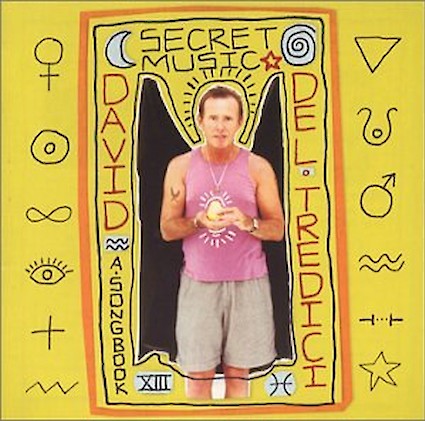Miz Inez Sez is a cycle of five songs, for high soprano and piano, to the poetry of Colette Inez. Four of the songs were written in 1996 and one (The Beckoning) in 1998. The work was commissioned by the ensemble Sequitur and is (as the title-page says) "dedicated with admiration and friendship to Hila Plitmann."
Colette lnez, a much-honored American poet, has written eight books and is on the faculty of Columbia University. Inez and I are kindred spirits. We each share an uproarious, fanciful sense of fun, as well as a tormented Catholic past. As had James Joyce, so now does Colette lnez touch my damaged Catholic nerve, which is a spot full of hurt and, paradoxically, humor—that effective, if temporary, antidote to pain.
Inez refers to herself as a "collapsed" Catholic. Her father became a monsignor the year she was born! Raised by severe Belgian nuns, she was, at eight, adopted by a Long Island family "Looking to soothe its alcoholic discord," she writes.
The verse of Colette lnez is madcappedly poignant, brilliantly nutty, freshly, richly, deeply felt. All of the songs in the cycle are musically interconnected and played without pause:
Alive and Taking Names
This title poem from her second collection (1977) is a "list" poem—a playful compendium of hypochondriacal complaints. The first verse lists ointments; the second verse, ailments; the third, medicine men. The concluding couplet is a surprise (and, I think, the real-life voice of lnez) as it affirms a simple, undoctored wellness.
The music is a steady chain of complaining, anguished minor seconds resolving into minor thirds. Only at the end, with the words "I am well..." does the music suddenly turn to the happier major mode. Curiously, the piano accompaniment is for the left hand alone.
The Happy Child
From her fourth book, Family Life (1988), this is another poem with a "twist" at the end. As well, it is what I would call an "inner child" poem. Four of the five verses paint the happy child's idyllic, fairy-tale existence. Everything looks perfect. The last verse reveals the lie, as the buried voice of the unhappy inner child emerges—angry, resentful, ignored, hurting.
The music follows the poem's dramatic shift of tone. Quiet parallel major ninth chords through various keys fill the first four verses. With the fifth painful verse, the music turns to the minor mode and rises to a passionate climax. Over a flowing piano arabesque, the last four lines of the poem are repeated in the manner of a lament As this dies away, the Happy Child music starkly reappears and entwines itself—happy and sad 'til the end.
Good News! Nilda Is Back
Walking one April in the Washington Heights section of New York City, Colette lnez saw a beautician's window proclaim: "Good News! Nilda Is Back." The poem, she says, immediately began to form itself in her consciousness: the imaginary life of Nilda, hairdresser in upper Manhattan.
At eight and a half minutes, this is not only the longest song of the cycle but also the most "Spanish." Really, this is more dramatic scene than art song. Examples of drama abound: at the words "now she cha chas up the aisles," familiar tango strains partner the music already in progress. At another turn, punctuated by unexpected percussion, Tico Tico is quoted. The maternal side of Nilda is suggested in an especially tender treatment of the line "like a grandmother combing the hair of a child." Nilda's imagined love life is not neglected: Passionate music underpins the line, "her hair... at night damp... from waves of love." The original sign-in-the- window/poem-title is heard one last time, as a tiny postlude—sung quietly, as if from afar.
The Reckoning
This is a garden poem, rich in flower names, nonsensical humor and the sheer joy of playing with language. Musically, the song is in a clear ABA form with the first three and last three lines of the poem framing a faster, brusquely playful middle section. As an ending, he poem's opening three lines appear again, reset to suggest mysterious tendrils beckoning ecstasy...
Chateauneuf du Pope, The Pope's Valet Speaks
This poem is a monologue—all in the increasingly drunken voice of a valet attending the pope. The poet tweaks the Catholic Church—its formality, its hypocrisy, its antiquated ways. Being drunk, the valet gets careless: Latin phrases appear nonsensically ("omnia vincit Armour baloney"), a shocking affair is revealed ("I once had a prioress..."), a resentment against all things Belgian ("that Flemish bulk of gutturals").
Like the third song, this is really a dramatic scene. The music—filled with pompous chord progressions, grandly drunken scale flourishes, skewered counterpoint —is unbuttoned and boisterous. Towards the end, I incorporate into the musical fabric the well-known Latin hymn "Tantum Ergo," to insure that the religious parody be inescapable. The piece ends with a nearly realistic "pounding at the door."
"The biggest work was the newest - Del Tredici's song cycle-cum-theater piece "Miz Inez Sez," which received its world premiere. It's set to madcap verses by Colette Inez, and as we have learned to expect from this composer, the piece is real kitchen-sink stuff, running the gamut of emotions and humor, and it's virtually impossible to perform. Mr. DT has scored it for virtuoso pianist (Del Tredici himself) and a soprano for whom the crazy role of Zerbinetta In "Ariadne ant Naxos" would be child's play. Anyway "Miz Inez Sez" is wonderfully flamboyant, belly laugh-provoking fun and totally lovable, though one wonders if a soprano of the spectacular gifts of Hila Pittman is available anywhere else. "
"These songs-often quirky, sometimes poignant, and unfailingly inventive, sound as if they were written at white-hot speed, and produce a blending of text and sound that is so complete as to leave the listener unable to detect the exact point where word becomes music, and music becomes word. They have Schubertian economy of means and directness. The precisely right musical gesture at the precisely right time. The dimensions and parameters of art song tolerate nothing less.
"Miz Inez Sez, composed between 1996 and 1998, uses texts by Colette Inez, who is, by her own admission, a "collapsed Catholic," a state that makes her and Del Tredici kindred spirits. In this all too brief five-song cycle, all stops are pulled. Manic humor and flamboyantly over-the-top (and repressively allusive) gestures are tempered with an underlying humanism that makes this most entertaining music far from mere entertainment. Soprano Hila Plitmann deserves extra battle pay. She negotiates her often torturously high-lying passages with commendable ease, and projects the subtexts of the poems masterfully. Del Tredici shows himself to be a fine pianist."
The Three Baritone Songs (composed in 1999) are culled from a larger cycle titled Inspirational Song. The text of "Quietness" was written by the ancient Sufi mystic Rumi, who, in the words of Del Tredici, "exhorts the listener to follow a medidative path through surrender to ecstasy." The remaining two songs set texts by Michael Klein and Jaime Manrique. The first of them describes various states of drunkenness, and ultimately, the hang-on-for-dear-life aspect of the disease. the final song, "Matthew Shepard," presents a metaphorical allusion to an AIDS-claimed lover of Del Tredici through the story of the young murdered Shepard. In it Del Tredici struggles with a moment that has largely escaped novelists from time immemorial, how to realize the moment when life becomes death. He does it as best can be expected.
His invocation, at its halfway point, to hymnody helps matters a bit, but also shows how our established and firmly entrenched religious communities stoked the fires that led to his murder. Baritone Chris Pedro Trakas acquits himself admirably in these performances.
Audio (5)
Recordings (1)


Secret Music, A Songbook
2001, CRI/New World Records (CD 878)Works
Performers
- Hila Plitmann, Soprano
- Chris Pedro Trakas, Baritone
- John Kelly, Vocalist
- David Del Tredici, Piano